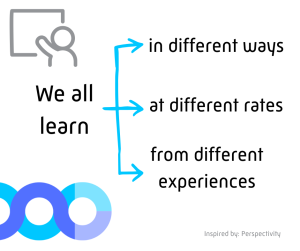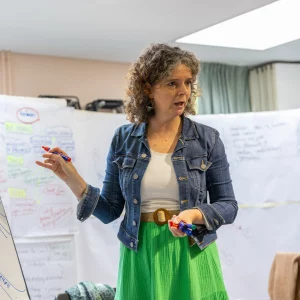As a trainer, have you ever found yourself wondering, “why don’t they get it?” or “wasn’t my explanation clear enough?”. Training isn’t always a walk in the park, especially when it comes to ensuring everyone in the room is on the same page.
The truth is that the learning process doesn’t follow a meticulously planned itinerary. It’s more like a bustling marketplace, where each participant brings their unique perspective, pace, and preferences. As facilitators, trainers, and leaders, it’s essential to acknowledge their diversity and keep our participants at the forefront of our educational efforts.
Here’s what you need to remember: every individual has their own…
- Way of learning – what clicks for one might baffle another.
- Experience to build on – which shapes their learning process.
- Learning pace – learning isn’t a race; it’s a journey. Some sprint, others stroll, and that’s perfectly okay.
Acknowledging these differences will help you as a trainer to enrich the learning environment and bring all your trainees with you. So, how do you work with trainees that differ in so many ways? Design your training with mindfulness, flexibility and patience.

Source: Perspectivity
Ways of learning
Cater to different learning styles by incorporating a variety of teaching methods and offering a range of activities to suit different types of learners. You can mix and match presentations, role-play exercises, self-study, assignments in pairs, group discussions, case studies, practical application exercises and brainstorming.
Leverage existing experiences as building blocks for new knowledge
By connecting your training to real life challenges, goals and situations which your trainees can relate to will boost their motivation and help bridge the gap between theory and practice.
Be patient!
The unsung hero of effective teaching: each trainer needs to cultivate patience.
When designing learning interventions, iCRA always accounts for the diversity of our participants. That’s why we always pay attention to different learning styles and experiences. This approach is integral to all our training and facilitation including the Future Search methodology we use to design interventions with a large group of stakeholders.


